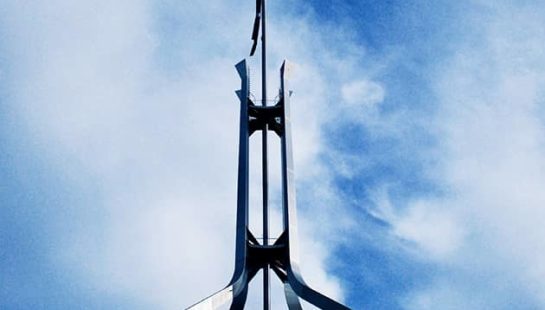Welcome to Australia
One Sunday morning in December 1977, a boat carrying refugees fleeing violence in their homeland, Vietnam, sailed into Darwin Harbour. They had survived treacherous seas, merciless pirates, and the despair of being towed into international waters by countries unwilling to embrace them.
In Darwin Harbour they were met by two fishermen in a tinnie, who drew alongside their boat and with outstretched arms shouted, ‘G’day mates. Welcome to Australia!’
Years later one of the refugees on that boat, Hieu Van Le, commented, ‘We were stunned by the warmth and good nature of this laconic welcome. And that one moment has left a lifelong impression on me. My personal navigation to Australia had been a combination of dark circumstances, accidents, fear, despair but most of all, of hope. At another time, in another place, a traveller such as me might have been greeted with fear or hostility, but at that time, in this place, what greeted me was a remarkable generosity of spirit.’
Promise of Protection Falling Flat
Almost 40 years later, in June 2013, another boat carrying refugees fleeing violence in their home countries sailed into Australian waters, but found neither welcome nor generosity of spirit. Australian governments had grown increasingly uneasy about boats carrying refugees and decided they must be stopped at almost any cost. Today we are among those nations that turn refugee boats away, preferring instead to welcome a select number of refugees who arrive in ways that we control and approve.
Our ordered and controlled approach sits uncomfortably with a world in which refugee flows are large and unpredictable. Think of the millions flowing out of the Ukraine today, of the images of Afghan people desperately trying to get out of Afghanistan as U.S. forces withdrew, or the millions fleeing Syria as it succumbed to civil war. Multiply that by lesser-known conflicts and outbreaks of persecution that occur regularly across the world. The result is vast numbers of people suddenly and unexpectedly crossing borders to find safety.
Jesus called for a disciple community in which our shared humanity was recovered, in which every person in need was to be embraced as neighbour.
The international community has promised them protection but is failing to live up to its promise. As nations that border conflict zones struggle to provide for the unexpected influx of thousands of refugees, more geographically distant and richer nations such as Australia shut their borders to the small number of ‘unauthorised’ refugees who dare reach their borders, and offer to resettle but a tiny fraction of those needing a new start.
What Does the Bible Tell Us?
The opening chapters of the Bible remind us that the universe is the handiwork of God, and that the earth and its resources are given for the flourishing of all its creatures. Human beings, as God’s representatives on earth, are responsible for stewarding the earth’s resources so that these ends are achieved.
So it is that God called the Israelites to recognise the land and its harvests as God’s gift for all who reside there. These were to be accessible to every household, to those who were often marginalised within the structures of household and tribe–the widow and orphan–and to those who sat outside these structures–the resident foreigner.
The Old Testament prophets and Jesus railed against those who grew wealthy by ignoring these provisions, declaring that God’s coming would mean their judgement and the delivering of the poor from their grip. Jesus called for a disciple community in which our shared humanity was recovered, in which every person in need was to be embraced as neighbour and the resources of household and community deployed for their care.
Translating such a vision into policy in a broken world is by no means easy. What seems beyond doubt is that Australia’s policy settings set the bar way too low.


 Peter Keegan,
Peter Keegan,

 Eliza Johnson
Eliza Johnson